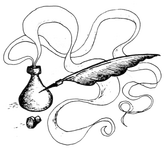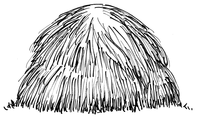Disruptive God Wind
Dear old and new friends,
In the Midwest this is tornado season when roaring, twisting dark-funnel prairie winds uproot and destroy structures requiring that they be rebuilt. A Kansas tornado is a mirror image of the Divine disruptive Spirit. To be vibrantly alive, every religious community, church and person needs an occasional visit by a holy tornado! As my friend the scripture scholar Roger Karban says of Pentecost, “The Spirit’s arrival upon the apostles was accompanied by wind, fire and noise – each one of a disruptive element!”
Insightful is his use of “disruptive” to describe the Spirit of God. When next in your marriage, family or church disturbing dissent appears, recall Karban’s use of “disruptive” for a visit by the Holy Spirit. This will not be easy since religion, music, art and poetry are based on symbols. The ancient image of God’s Spirit is a peaceful white dove, and such a serene symbol is hardly an image of heated conflict and noisy disturbance. Still, the word “disruption” can also mean a rupture, a coming apart, an opening—for something new to appear.
Lovers, after heated arguments followed by glacier silence, finally are reconciled…often with the flame of love actually burning with greater passion! In a similar way, groups who resolve dissent after struggling to reach a communal consensus grow more cohesive. Never desire your friendship or family, large or small, be that of uninterrupted peace since that describes death!
Large families called churches and small families called homes are ever-evolving. All evolution involves pain, suffering and death. Turmoil is an evolutionary element of all life. Instead of attempting to smother the disruptive trouble, help it run its full fiery course by patiently listening to all voices, finding validity in each until reaching a peaceful resolution. In life, imitate art which loves to play with disturbing disorder and entertains chaotic clutter in order to create new, dynamic rearrangement of previous forms.
A mighty Mongol fleet sailing to invade Japan in 1281 was destroyed at sea by a monstrous hurricane the Japanese named God Wind (kami: God + kaze: wind = Kamikaze). Toward the end of World War II in desperation the loosing Japanese used suicidal planes whose pilots took their name from the Kamikaze.
When next the noisy fiery winds of dissent sweep across your home or church, welcome the Holy Kamikaze, trust that the God Wind has swept into your life to recreate anew what has become stale and out of date.


 RSS Feed
RSS Feed